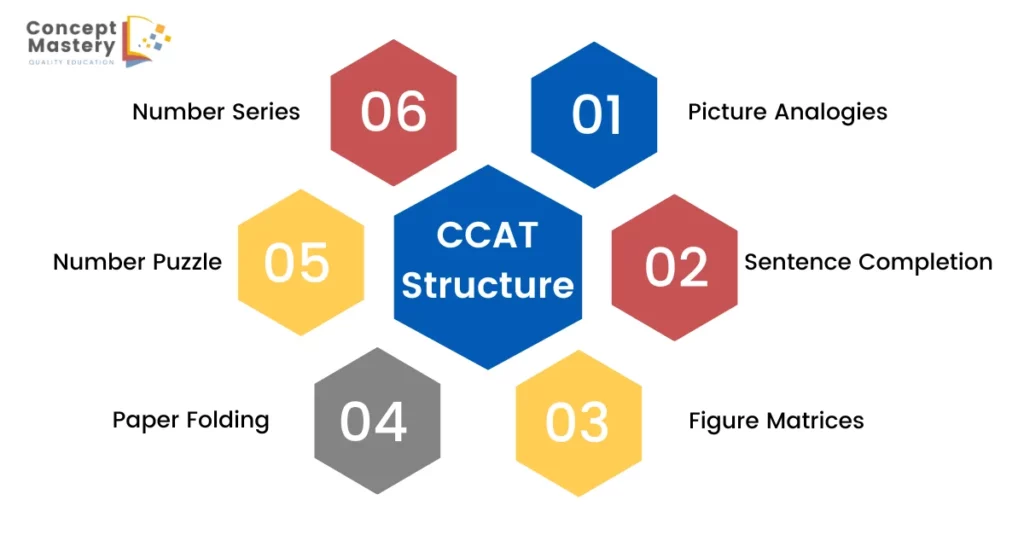The Canadian Cognitive Ability Test (CCAT) is not just a test; it’s a pivotal tool in academic and professional arenas. This comprehensive CCAT Preparation assessment plays a critical role in evaluating an individual’s problem-solving abilities, critical thinking skills, and capacity to apply new information effectively. Its significance spans across various contexts, making it a key instrument in shaping career paths and educational opportunities.
In academic settings, the CCAT is often used as a benchmark for admissions into advanced programs or institutions that prioritize cognitive abilities alongside academic achievements. It measures a student’s ability to think critically and solve problems, which are essential skills in today’s dynamic educational environment.
In the professional world, the CCAT is a valuable asset for employers. It helps in identifying candidates with high cognitive potential, which is crucial for roles that require quick thinking, adaptability, and the ability to learn and apply new information swiftly. This makes the CCAT an integral part of the recruitment process in many forward-thinking organizations, as it goes beyond traditional metrics of evaluation like experience and education, providing a deeper insight into a candidate’s innate abilities.
Understanding the role and significance of the CCAT in these contexts is the first step in appreciating its importance and, consequently, the need for thorough and strategic CCAT Preparation.
Decoding the Structure of the CCAT

The Canadian Cognitive Ability Test (CCAT) is a multifaceted assessment designed to evaluate various cognitive abilities. Understanding its structure is paramount for effective CCAT Preparation. It comprises diverse question types, such as verbal, non-verbal, and quantitative reasoning. Each section assesses distinct cognitive skills, making it crucial for aspirants to familiarize themselves with these varied formats. This understanding not only aids in CCAT Test Practice but also helps in strategizing approaches for different question types.
Importance of CCAT Preparation
CCAT Preparation transcends the boundaries of a typical test; it’s an investment in cognitive development. Preparing for the CCAT enhances critical thinking, problem-solving, and analytical skills. These skills are invaluable in academic and career pursuits, making the preparation phase instrumental for long-term success. Regular CCAT Test Practice and exposure to a variety of question types contribute significantly to cognitive growth.
Developing a Study Plan for CCAT Preparation
A well-structured study plan is the backbone of efficient CCAT Preparation. It should encompass a thorough analysis of the CCAT structure, followed by a balanced time allocation for each section. Integrating various study materials and methods, such as CCAT Test Practice and theoretical learning, is essential. Additionally, setting achievable milestones and regular self-assessment helps maintain focus and measure progress.
Here are 10 quick tips to help you prepare for the Canadian Cognitive Abilities Test (CCAT):
- Understand the Format: Familiarize yourself with the CCAT’s structure, including the types of questions (verbal, quantitative, non-verbal) and the test format.
- Practice Regularly: Consistent practice is key. Use sample questions and practice tests to get comfortable with the question types and timing.
- Improve Your Verbal Skills: Read widely and practice verbal reasoning questions to enhance your vocabulary and comprehension skills.
- Sharpen Your Math Skills: Review basic math concepts and practice quantitative reasoning problems. Focus on speed and accuracy.
- Develop Non-Verbal Reasoning: Practice pattern recognition and spatial awareness exercises, as these skills are crucial for the non-verbal section of the test.
- Time Management: Learn to manage your time effectively during the test. Practice completing questions under timed conditions.
- Take Full-Length Practice Tests: Simulate test conditions by taking full-length practice tests. This helps build stamina and gives you a realistic idea of the test experience.
- Analyze Your Performance: After each practice test, review your answers, especially the wrong ones. Understand where you went wrong and how to improve.
- Relaxation Techniques: Learn and practice relaxation techniques to reduce anxiety and improve concentration during the test.
- Healthy Lifestyle: Ensure you get adequate sleep, exercise regularly, and eat healthily in the days leading up to the test. A healthy body contributes to a sharp mind.
Remember, preparation for CCAT is not just about cramming; it’s about developing your cognitive skills gradually and consistently. Best of luck with your preparation!
Role of CCAT Preparation Tutors

Image Source: Freepik
CCAT Preparation Tutors play a critical role in guiding aspirants through the nuances of the test. These professionals provide personalized strategies, pinpoint areas of improvement, and offer tailored CCAT Test Practice sessions. Their expertise in breaking down complex concepts and providing moral support is invaluable, particularly in navigating challenging sections of the test. A competent tutor can be the catalyst for turning potential into success in CCAT preparation.
Effective Time Management During CCAT
Time management is a crucial skill in CCAT Preparation, significantly impacting test performance. Candidates should develop strategies to allocate time efficiently across different sections of the test. Practicing with timed CCAT Test Practice questions helps in building speed and accuracy, which is essential for completing the test within the given timeframe. Learning to discern and tackle easier questions quickly first can optimize time usage during the actual test.
Mathematical Skills in CCAT Preparation
Mathematical proficiency is a key component of the CCAT, requiring focused preparation. Building a strong foundation in basic mathematical concepts is essential. Regular practice of diverse mathematical problems enhances problem-solving abilities and speed – both crucial for the CCAT. Incorporating a variety of mathematical puzzles and exercises in CCAT Test Practice can significantly boost quantitative skills, making this an indispensable part of CCAT Preparation.
Utilize Official CCAT Practice Materials

Image Source: Freepik
Acquaint yourself with the format and difficulty level of the CCAT by using official practice materials. These resources, provided by the test creators, offer a realistic preview of the test environment and question types. Practice tests, sample questions, and detailed explanations can be invaluable tools in refining your skills and familiarizing yourself with the CCAT’s nuances.
Conclusion
In the journey to master the Canadian Cognitive Ability Test (CCAT), a strategic approach, coupled with continuous practice and a holistic view of preparation, is non-negotiable. This article has traversed through the various facets of CCAT Preparation, highlighting the significance of understanding the test’s structure, the invaluable role of dedicated tutors, the necessity of a well-crafted study plan, and the importance of honing specific skills such as time management and mathematical proficiency.
Contact us today and improve your learning with the Concept Mastery’s best CCAT preparation program.
FAQs on CCAT Preparation
The primary purpose of the CCAT is to assess an individual's problem-solving abilities, critical thinking skills, and capacity to apply new information effectively, serving as a pivotal tool in academic and professional evaluations.
CCAT Preparation is crucial for academic pursuits as the test is often used as a benchmark for admissions into advanced programs or institutions that prioritize cognitive abilities alongside academic achievements. It measures critical thinking and problem-solving skills essential for success in today's dynamic educational environment.
CCAT is considered a valuable asset for employers as it helps identify candidates with high cognitive potential, crucial for roles requiring quick thinking, adaptability, and the ability to learn and apply new information swiftly. It provides deeper insights beyond traditional metrics like experience and education.
The CCAT assesses various cognitive skills, including verbal reasoning, non-verbal reasoning, and quantitative abilities, making it essential for candidates to familiarize themselves with different question types during preparation.
CCAT Preparation goes beyond typical test preparation; it's an investment in cognitive development. Regular practice, especially through CCAT Test Practice, enhances critical thinking, problem-solving, and analytical skills essential for long-term success in academic and career pursuits.
CCAT Preparation Tutors play a critical role by providing personalized strategies, pinpointing areas of improvement, and offering tailored CCAT Test Practice sessions. Their expertise is invaluable in navigating challenging sections of the test and turning potential into success.
Effective time management is crucial during CCAT Preparation as it significantly impacts test performance. Developing strategies to allocate time efficiently across different sections and practicing with timed CCAT Test Practice questions helps build speed and accuracy.
Mathematical proficiency is a key component of the CCAT. Building a strong foundation in basic mathematical concepts and incorporating diverse mathematical puzzles in CCAT Test Practice significantly enhances problem-solving abilities and speed.
Utilizing official CCAT practice materials is essential as they offer a realistic preview of the test environment and question types. Practice tests, sample questions, and detailed explanations provided by the test creators are invaluable tools for refining skills and familiarizing oneself with the CCAT's nuances.

